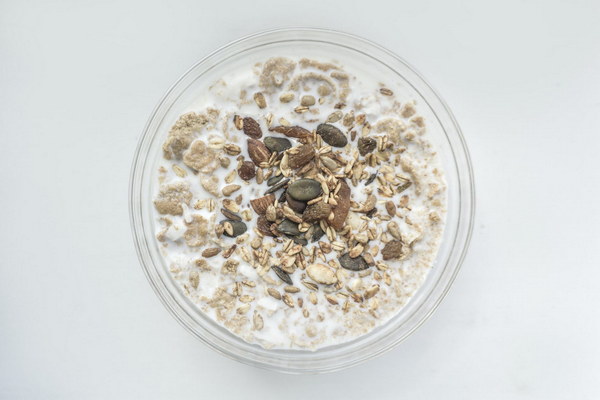Nourish Your Spleen and Stomach A Holistic Approach to Enhance Wellbeing
The spleen and stomach, as fundamental components of Traditional Chinese Medicine (TCM), play a crucial role in maintaining overall health and well-being. These organs are responsible for transforming food into vital energy, ensuring proper digestion, and supporting the immune system. In this article, we will delve into the importance of nurturing your spleen and stomach, along with practical tips to enhance your health through holistic approaches.
I. Understanding the Spleen and Stomach in TCM
In TCM, the spleen and stomach are considered to be the storehouse of Qi (vital energy). They are responsible for transforming food into Qi, which is essential for the growth, development, and maintenance of the body. When the spleen and stomach are functioning optimally, the body is strong, and the immune system is robust. Conversely, when these organs are weakened, it can lead to various health issues.
The spleen's primary functions include:
1. Transporting and transforming nutrients: The spleen is responsible for breaking down food and extracting essential nutrients for the body's use.
2. Generating Qi: The spleen produces Qi, which is vital for energy production and overall health.
3. Controlling the blood: The spleen ensures that blood is properly distributed throughout the body.
The stomach's primary functions include:
1. Receiving and breaking down food: The stomach is responsible for breaking down food into smaller particles, making it easier for the spleen to absorb nutrients.
2. Producing digestive juices: The stomach produces digestive enzymes and acids to break down food and facilitate nutrient absorption.
II. Signs of Spleen and Stomach Deficiency
Recognizing the signs of spleen and stomach deficiency is essential for early intervention. Some common symptoms include:
1. Weakness or fatigue: A lack of Qi can lead to weakness, fatigue, and a general feeling of being rundown.
2. Digestive issues: Problems like bloating, gas, constipation, or diarrhea may indicate a spleen and stomach imbalance.
3. Immune system weakness: A weakened spleen can result in a compromised immune system, leading to frequent colds, flu, and infections.
4. Edema: Excess fluid retention can cause swelling in the legs, ankles, and feet.
5. Poor appetite: A decreased desire for food may indicate spleen and stomach deficiency.
III. Tips for Nourishing Your Spleen and Stomach
1. Eat a balanced diet: Consume a variety of nutrient-rich foods, including lean proteins, whole grains, vegetables, and fruits. Avoid excessive sugar, caffeine, and spicy foods, as they can irritate the spleen and stomach.
2. Practice proper eating habits: Eat slowly and chew thoroughly to aid digestion. Avoid overeating, as it can burden the spleen and stomach.
3. Engage in gentle exercise: Regular physical activity can boost your immune system and improve digestion. Activities like walking, tai chi, or yoga are ideal for those with spleen and stomach issues.
4. Get enough rest: Adequate sleep is crucial for overall health and the proper functioning of the spleen and stomach. Aim for 7-9 hours of quality sleep per night.
5. Manage stress: Chronic stress can weaken the spleen and stomach. Practice stress-reduction techniques, such as meditation, deep breathing, or spending time in nature.
6. Herbs and supplements: Some natural remedies can help support spleen and stomach function. Consult with a TCM practitioner before taking any herbs or supplements.

7. Acupuncture and massage: Acupuncture and massage therapy can help balance the body's energy, alleviate pain, and improve digestion.
By incorporating these tips into your daily routine, you can help strengthen your spleen and stomach, leading to improved overall health and well-being. Remember, it's essential to consult with a healthcare professional before making significant changes to your diet, exercise, or lifestyle.









